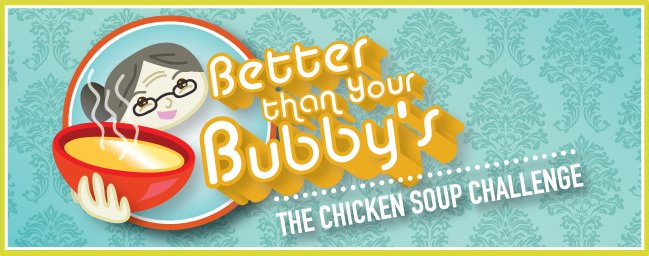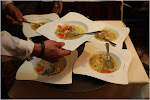From MayoClinic.com
http://www.mayoclinic.com/health/cold-remedies/ID00036#
Cold remedies: What works, what doesn't, what can't hurt
There's no cure for the common cold. But what about cold remedies that claim to make you feel better faster? Find out what's effective — and what's not.
Cold remedies are almost as common as the common cold, and many are nearly as ancient. The use of chicken soup as a congestion cure dates back centuries. But is longevity any guarantee that a cold remedy works? Do effective cold remedies even exist? Here's a look at some common cold remedies and what's known about them.
Cold remedies: What works
If you catch a cold, you can expect to be sick for about a week. But that doesn't mean you have to be miserable. These remedies may help:
Water and other fluids. You can't flush a cold out of your system, but drinking plenty of liquids can help. Water, juice, clear broth or warm lemon water with honey helps loosen congestion and prevents dehydration. Avoid alcohol, coffee and caffeinated sodas, which make dehydration worse.
Salt water. A saltwater gargle — 1/2 teaspoon salt dissolved in an 8-ounce glass of warm water — can temporarily relieve a sore or scratchy throat.
Saline nasal sprays. Over-the-counter saline nasal sprays combat stuffiness and congestion. Unlike nasal decongestants, saline sprays don't lead to a rebound effect — a worsening of symptoms when the medication is discontinued — and most are safe and nonirritating, even for children.
Chicken soup. Generations of parents have spooned chicken soup into their sick children. Now scientists have put chicken soup to the test, discovering that it does have effects that might help relieve cold and flu symptoms in two ways. First, it acts as an anti-inflammatory by inhibiting the movement of neutrophils — immune system cells that participate in the body's inflammatory response. Second, it temporarily speeds up the movement of mucus through the nose, helping relieve congestion and limiting the amount of time viruses are in contact with the nose lining. So which is better, homemade or canned? Researchers at the University of Nebraska compared homemade chicken soup with canned versions and found that many, though not all, canned chicken soups worked just as well as soups made from scratch.
Over-the-counter cold medications. Nonprescription decongestants and pain relievers offer some symptom relief, but they won't prevent a cold or shorten its duration, and most have some side effects. If used for more than a few days, they can actually make symptoms worse. The Food and Drug Administration (FDA) recommends that parents avoid such cold medicines for children younger than age 2. And they are evaluating the safety of these medications in older children.
Keep in mind that acetaminophen (Tylenol, others) can cause serious liver damage or liver failure if taken in high doses. It's common for people to take Tylenol in addition to flu medications that also contain acetaminophen, which can lead to drug overdoses. Read the labels of any cold medication carefully to make sure you're not overdosing.
Humidity. Cold viruses thrive in dry conditions — another reason why colds are more common in winter. Dry air also dries the mucous membranes, causing a stuffy nose and scratchy throat. A humidifier can add moisture to your home, but it can also add mold, fungi and bacteria if not cleaned properly. Change the water in your humidifier daily, and clean the unit at least once every three days.
Friday, January 2, 2009
Subscribe to:
Post Comments (Atom)



No comments:
Post a Comment